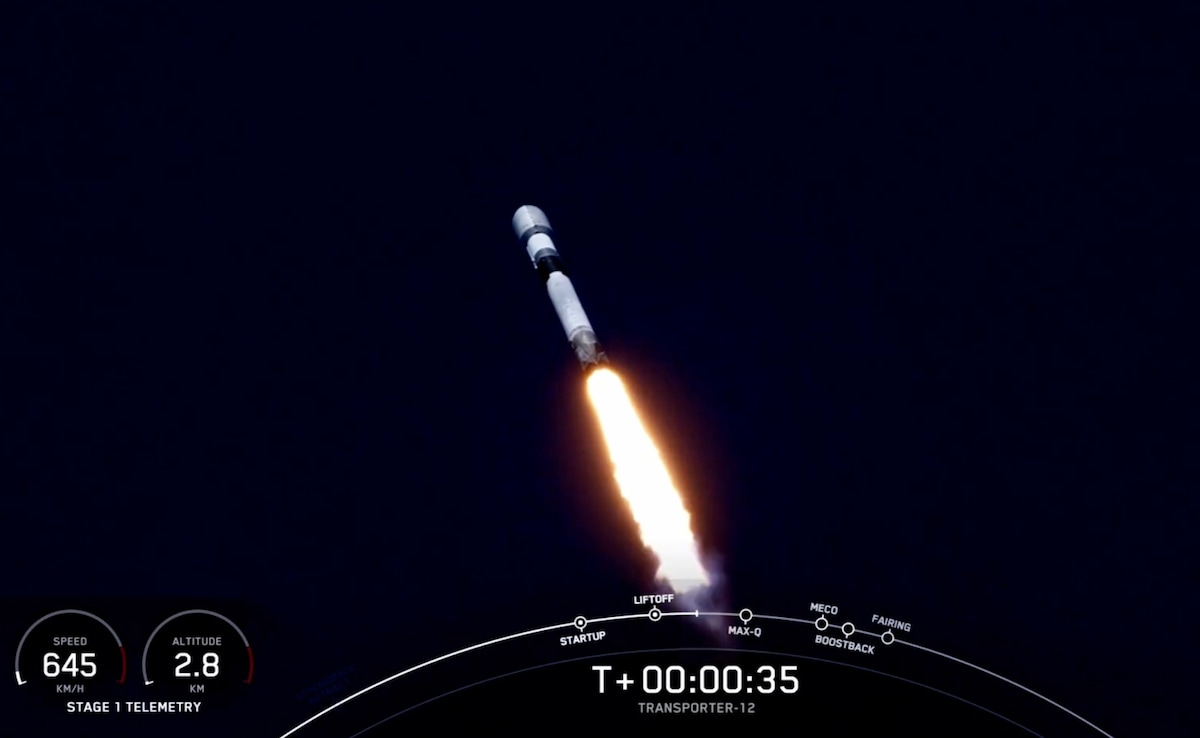
A Bengaluru-based space startup has made history by giving India the first private earth imaging satellite constellation. The constellation -‘Firefly’ – has been developed by Pixxel.
Pixxel – which has offices in India and the United States – was started in 2019 by Awais Ahmed and Kshitij Khandelwal while they were still studying at Birla Institute of Technology & Science, Pilani. They have already raised $95 million, becoming one of India’s satellite success stories.
Overnight, three ‘Firefly’ satellites were launched into 550-kilometre low Earth orbit, using a SpaceX Falcon-9 rocket from Vandenberg Space Force Base, California. Three more satellites will be launched later this year.
Congratulating Pixxel on this milestone, Dr Somanath, former Chairman of the Indian Space Research Organisation (ISRO) – under whose leadership new age space startups blossomed – told NDTV, “I hope that the impact of this hyperspectral imaging capability turns out to be a great boon to the sector”.
Till now, all precision earth imaging satellites from India have been owned and operated by the Indian Space Research Organization (ISRO) which has about 52 different satellites in space. Lately, India’s burgeoning private space sector has been increasingly giving competition to the government behemoth.
The space data company said these satellites are designed to deliver critical climate and Earth insights with unmatched precision, each satellite sets a new benchmark in hyperspectral imaging. With advanced spectral capabilities, near real-time data collection, and wide-ranging applications, the ‘Firefly’ constellation is poised to revolutionise how we understand, interact with, and safeguard our planet’s resources.

Awais Ahmed (left) and Kshitij Khandelwal founded Pixxel while still in college.
Praising the singular achievement Lieutenant General Anil Bhat (retired), Director General of the Indian Space Association (IspA), New Delhi, said, “Pixxel has found a unique niche by giving the world high-end imaging satellites which are a game changer for both monitoring Earth and defence applications”. He also pointed out that today Pixxel is India’s most well-funded space startup which took quick advantage of the opening up of the space sector by the Indian government in 2020.
In a statement, Pixxel said the ‘Fireflies’, currently the world’s highest-resolution commercial-grade hyperspectral satellites, bring unprecedented precision to monitoring the planet and setting a new benchmark for hyperspectral imaging capabilities. With a five-meter resolution attained for the first time in a hyperspectral spacecraft, ‘Fireflies’ are six times sharper than the 30-meter standard of most existing hyperspectral satellites, capturing fine details previously invisible to conventional systems.
“The future of our planet depends on how deeply we understand it today. The successful deployment of our first commercial satellites is a defining moment for Pixxel and a giant leap toward redefining how we use space technology to address the planet’s challenges,” said Awais Ahmed, founder and CEO of Pixxel.
Pixxel’s journey began in April 2022 with the historic launch of ‘Shakuntala’, India’s first private Earth-imaging hyperspectral satellite, aboard a SpaceX mission via Exolaunch, followed by ‘Anand’ on ISRO’s PSLV.
These milestones catalysed India’s private space ecosystem, proving that Indian companies could deliver cutting-edge technology on par with global leaders.
The ‘Fireflies’ built on this legacy, embodying years of indigenous research and development and engineering excellence and a vision to bring globally relevant and meaningful Earth insights from India.
The ‘Firefly’ constellation also marks a watershed moment in India’s space journey as the nation’s first commercial satellite constellation. These satellites surpass international standards in hyperspectral imaging, showcasing India’s growing innovation and leadership in advanced space technology. They embody the spirit of “Make in India” and “Atmanirbharta” while highlighting the truly progressive impact of India’s space reforms.
Kshitij Khandelwal, co-founder and chief technology officer (CTO) of Pixxel, said, “The ability of ‘Firefly’ to detect subtle changes in Earth’s ecosystems will provide industries and governments with the precise information needed to address critical global challenges confidently.”
Mr Ahmed told Reuters that it plans to add 18 more spacecraft to the six it has already developed, eyeing a share of the satellite imaging market projected to reach $19 billion (roughly Rs 1,64,451 crore) by 2029.



